Fourteen alumni tell us how COVID-19 has shaped their lives.
Columbia College | Columbia University in the City of New York
Fourteen alumni tell us how COVID-19 has shaped their lives.
In March, when we were considering CCT’s Summer 2020 issue, we knew that we wanted to address the shockwave that had upended and overtaken all of our lives. The COVID-19 pandemic was — is — that rare event that affects everyone with ties to the College. Even as this introduction is written, its vast, global story continues to evolve, expanding and deepening in ways that resist easy comprehension.
Against this backdrop, we knew we could tell a more personal story, create a record of how the coronavirus and its many ripple effects had been experienced by our community. And so, in April and early May, we asked 14 alumni to offer a keyhole into their daily lives: What did their new routines look like? How had work changed? What had been challenging, and where were they finding their joys?
The responses were varied, shaped by age, profession, location and all the personal variables that distinguish one life from the next. And what began as a kind of time capsule became, slowly, so much more. The reflections enlarged our view beyond the walls that had all too literally been hemming us in. They invited us to exercise our empathies, take comfort in shared experiences and — with so many of us social-distanced into solitude or small groups — feel the warmth of connection.
It will be a long time before we can fully reckon with all that’s happened and is happening during this pandemic. But we are going through it together, and we hope that our contribution can help.
— The Editors

Editor-at-large, iHeartMEDIA; chief content officer at Nineteen Twenty Media
“Though I was an English lit major at Columbia, these days I find myself immersed in the sciences, living out Einstein’s definition of insanity on the regular: watching the news, then instantly regretting it; begging/bribing/browbeating my kids to sit for home-schooling, only to surrender an hour later; channeling Alice Waters for breakfast, Chester Cheetah by lunch. Our days here at Casa Goldman (me, two grade-schoolers, one eye- rolling husband) are — wait, what day is it, again? We ditched the skim for half-and-half. We subscribed to Hulu. We pray to the broadband gods to keep our signal strong. We are, as the kids say, hashtag blessed.
“As a writer, I wrestle with a strange new tension: I have never felt more creative and yet so hard-pressed to eke out the time and focus to write. But I’ve still managed to bank a win or two. I launched a podcast called Hazmat Hotel, in which I interview interesting people about how coronavirus has upended their professions. (Hit me up if you’d like to be a guest.) I finished my one-woman show about Jim Comey. I am knee-deep in a new screenplay. In the past eight weeks, one of my boys has discovered Seinfeld, the other ‘Shark Week,’ so that Hulu subscription is basically paying for itself now. The news from Casa G is that we are all OK, hanging in and enormously grateful, thank you for asking.”
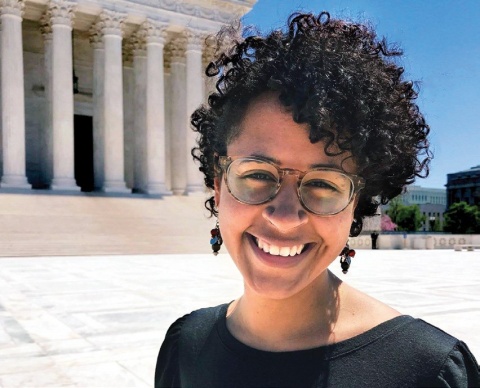
Policy analyst, NYC Mayor’s Office of Policy and Planning; volunteer coordinator, Bowman for Congress
“I work for the Office of the Mayor in New York City full-time and coordinate volunteers on Jamaal Bowman’s congressional campaign in NY-16 part-time. With local government on the front lines of the coronavirus crisis and, as I write, the June 23 primary less than two months away, I am busier than I have ever been.

“I try my best to work out a few times a week and use Friday evenings to catch up on TV shows and work on crafts. I rediscovered my pottery tools when quarantine began and ordered polymer clay and embroidery floss to make earrings. A friend recommended that I order a weaving loom to make tapestries and rugs — it just arrived, so I am going to try that this week. My roommate’s mom might drop off an old sewing machine so I can try my hand at that, too.
“Work can be a bit overwhelming, so using my hands to make things for myself, family and friends is a welcome reprieve from corona madness.”
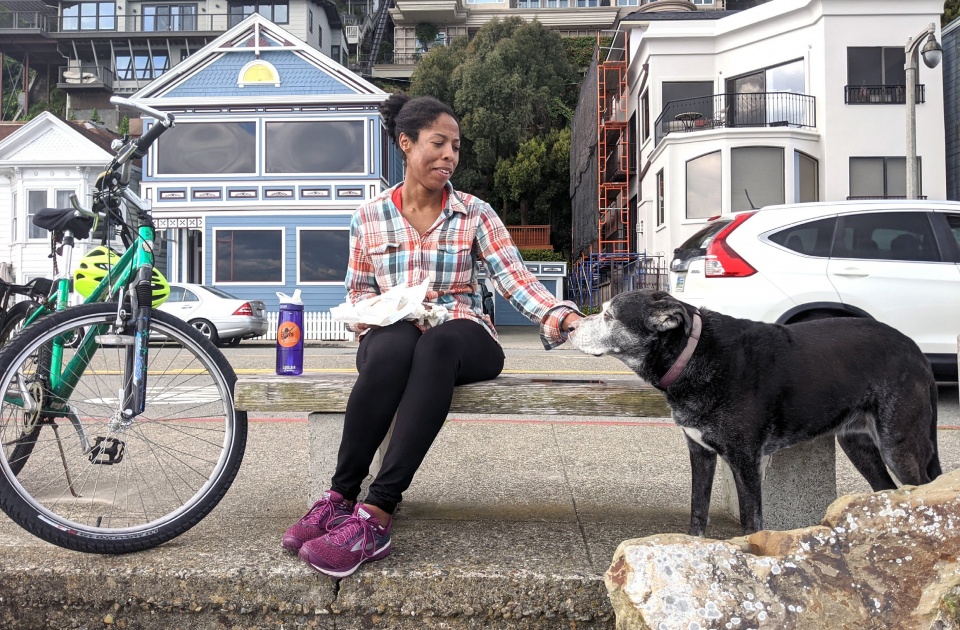
COURTESY AMARI HAMMONDS ‘09
Associate deputy solicitor general, Office of the Solicitor General in the California Department of Justice
“What if I had to go about my life not knowing the next time it’d be OK to touch another person? I’m single and I live alone, so this has become an abiding question in the weeks, now months, since March 16, when the Bay Area announced its first-in-the-nation shelter-in-place order.
“I’ve learned that isolation makes the memory of my last human contact more indelible — a Kid ’n Play-inspired kickstep as my friend Colin left what would be our last Sunday pancakes together. We now connect through FaceTime meals; from afar, he’s taught me how to make a poached egg. But I’ve also learned that regardless of health orders, video calls won’t cut it. I’m grateful to have cultivated relationships with a select few who, like me, crave connection in the absence of the pandemic-friendly community offered by roommates or romantic partners ‘adjacent’ to their households. A conversation while biking 6 ft. apart is critical nourishment. I once petted a gentle old dog named Loki after one such ride to the Sausalito waterfront, and it was like oxygen for me — though for her, probably more about the hot pastrami sandwich in my hand.
“Most importantly, I’ve learned to be gentle with myself for the swirl of feelings this all brings. It is possible to feel at once abandoned by friends who have hunkered down with the privilege of companionship, while also compassionate toward their choice — one I’d likely make, if given the option. It’s OK to spend one night crying myself to sleep, wishing I could join my mom across the country, then the next cutting up playing Codenames over Google Hangouts as if I’d lived my life this way all along.
“Until ‘normal’ returns at some indeterminate point, in some indeterminate form, I’m learning what that looks like for now and receiving sweetness in every form. My friend and her husband recently invited me for a socially distant picnic, and to meet their puppy. I’ll be there with a fashionably colorful mask and hand sanitizer at the ready.”
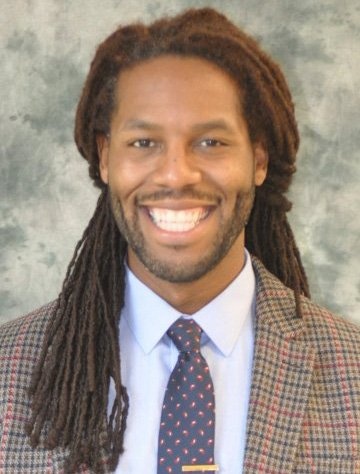
COURTESY BRENDON JOBS ‘05
Director of diversity and inclusion, The Haverford School; social studies methods instructor at the Penn Graduate School of Education
“School closed suddenly in March as the threat of pandemic became a real crisis. Like many, I’ve been going through a grieving process for the life, vigor and human connection that the schoolhouse offered me in all my years of teaching.
“At the start, I was overwhelmed with the multitude of tasks needed to make the transition [to remote learning] work for my students, faculty and other communities that I serve. Fear and duty defined my feelings in that moment. But it wasn’t long before anger and resentment grabbed hold of me. Hopeful proclamations that ‘we’re all in this together’ came from official channels; they offered encouragement that if we adhered to social distancing we could flatten the curve and ‘get back to normal.’ It wasn’t long afterward that nasty disparities in race and class, in keeping with pre-COVID-19 patterns, magnified. As an educator, I wondered: How can I explain this to kids? How does what they’re witnessing shape their understanding of how the world works?
“As a black queer man growing up in the 1990s, I remember living with the fear of the AIDS virus. Implicitly, I was fed the message that I lived with greater risk of contracting the disease in a way that stigmatized me. Those old feelings have reemerged as I have witnessed COVID-19 transform from a foreign threat into a health crisis disproportionately infecting and killing Black and Brown people; meanwhile, violent, armed calls to reopen businesses rage from white protestors in Michigan and Pennsylvania despite these deaths. My mother and sister still report to their jobs as ‘essential workers,’ and my father lost his job abruptly as an early casualty of the predicted economic crash. These disparities will only grow as long as we continue to allow politics and business interests to make us willfully ignorant to wild differences in the human experience of this moment. I often struggle to imagine a different, more hopeful outcome.
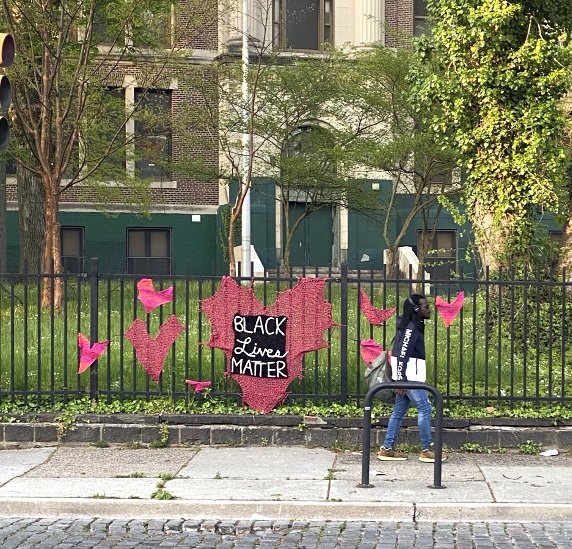
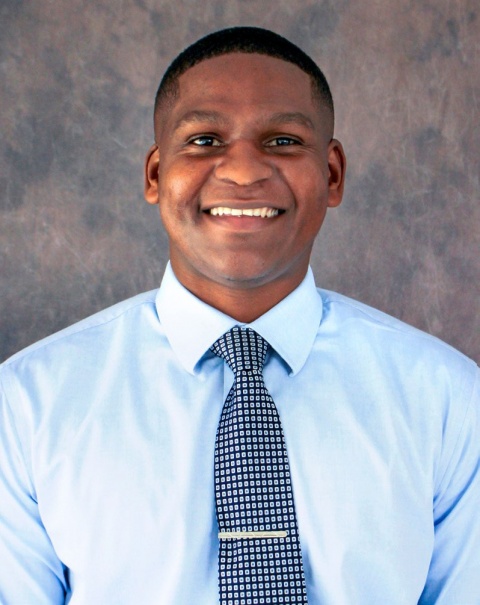
COURTESY DR. JOSH JOHNSON ‘13
Surgical resident, NewYork Presbyterian-Weill Cornell Medical Center
“Ringing loudly in the background of my day is a cacophony of alarms and notifications that are meant to signify an imminent medical emergency — yet they have become so ubiquitous that I can no longer distinguish among them. The hours I spend on the wards have not changed much; I am here for anywhere between 12 and 24 hours a shift, depending on the day. However, the intricacies of my work have shifted dramatically. Willing or not, I am greeted each day by an endless list of patients with tarnished lungs who require the utmost interventions possible to keep oxygen flowing throughout their bodies. It has been truly taxing.
“The difficulty lies in having to carry on and continue my duties without the time to grieve our losses, to celebrate our wins and to reflect upon our struggles. Yet what has been remarkable is that my connection to my patients and their families has never been deeper. Though my patients cannot speak to me, I hear their pain. Though I cannot see their loved ones in person I have had immensely intimate conversations with them, and I have forged relationships based solely on trust and hope. During this pandemic I have healed others more through compassion and understanding than I have through modern science. That is the lesson I hope to never forget.”

COURTESY NYPD
Chief chaplain, NYPD; adjunct professor, John Jay College of Criminal Justice
“Life in the Age of COVID-19 has not been simple or easy for any of us. I’ve had to respond to new challenges: teach classes remotely, conduct Zoom funeral services, attend virtual meetings and counsel the troubled by telephone. Perhaps the most awe- some responsibility of all was to fulfill a request to do a video with a message of ‘uplift’ and ‘encouragement’ for our police officers. Quite frankly, reading the newspaper reports every day about the ever-mounting casualty figures, and discovering that many of the victims are people I know and love, leaves me in need of uplift and encouragement. However, I felt this was really important because police officers are among the first responders to have suffered the heaviest casualties. After all, they are required to answer the call of duty regardless of the risks, including the coronavirus.
“Somehow, notwithstanding my own concerns and anxieties, I managed to put something together. It was based on Mark Twain’s observation that courage isn’t the ‘absence of fear but the mastery of it.’ There are two ways to transcend anxiety: faith in God and faith in each other. To believe in God is not simply to believe that there is a deity who will intervene and alter reality to accord with our wishes. Even more basically, it is the confidence that there is a Benevolent Intelligence undergirding the universe that fills us with the hope, optimism and trust that human beings possess the wisdom and skills required to solve the toughest problems.
“Then there is the most effective therapy of all — each other. Men and women, helping and supporting one another by doing things they don’t have to do, is the essence of love and closest we shall ever come to experiencing genuine spirituality. It is true that COVID-19 requires us to stay apart physically, but getting in touch with each other — as well as family, friends and neighbors assisting each other — can be so important and pivotal in transcending this crisis. I certainly cherish the calls and emails I have received as I cope with the physical distancing of this experience. What they proclaim in the most eloquent and dramatic way possible is that we don’t have to struggle with this alone.”
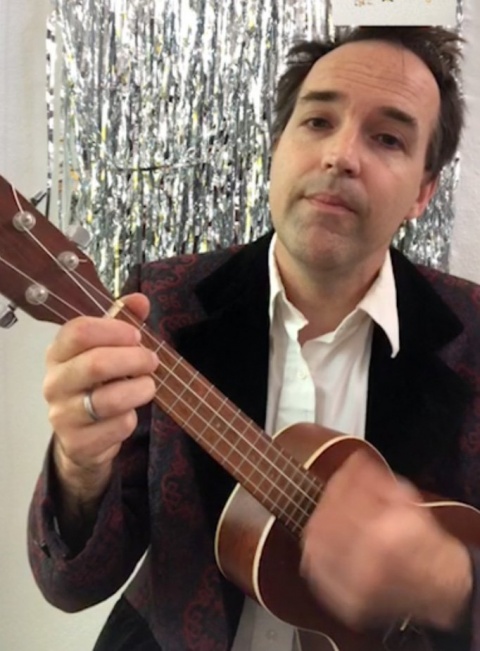
COURTESY IAN LENDLER ‘96
Children’s book author
“Like so many others, the virus, alas, has afflicted me.
“For I, you see, am a writer, and I write things of terrible importance. I am a Creator of Truths, a conjuror of metaphors. Every morning I sit at my desk and I call to my Muse; she answers, and we begin a delicate dance of words and images and — oh yes! — similes as well! And just as my prose begins to touch the great mysteries of Life —
“‘DAD! DAD!’ My children burst into the room. ‘Can we have some Goldfish crackers?’
“‘Be still!’ I shriek. ‘What matters your aquatic-shaped snacks when I seek Beauty?’ “But it is too late. My Muse begins to back out of the room. She says, ‘You never told me you had kids.’
“‘You don’t understand,’ I splutter. ‘Normally they’re at school now.’ But she is already gone.
“Then, my wife shouts from a different room that she’s on a Zoom call and the kids need lunch.
“So I make my kids lunch.
“In the afternoon, once again, I tap at my keyboard, calling my Muse back, and with a curtsy and an impish wink, she and I begin to weave our —
‘Dad! DAD! We’re playing Fortnite with our cousins. We need your computer!’ and my kids snatch my laptop away.
“And so I wander the house, alone, bereft of my computer (and thus, all meaning), until my wife shouts from a different room that she’s on a Zoom call and can I get dinner started?
“And tomorrow and tomorrow and tomorrow creeps in this sheltered-in-place ... until ... what’s this?!
“I have been asked to do an ‘Instagram live reading,’ whatever that is ... But I seize my chance to perform for my adoring audience. To conjure worlds for them; to shaman their imaginations to an ethereal realm.
“So for your undoubted delight (and the consideration of Nobel Prize committees), I give you what I believe to be my most harrowing and important work to date.”

COURTESY STEVE MARTINEZ ‘11
Television producer, ESPN’s The Jump
“The show must go on, but my daily routine has been altered significantly. The Jump is now entirely produced from home: on-air talent, producers, directors and so on; we’re doing our best to help deliver to folks a 30-minute slice of escapism every day. Most of our work in production is now done the night before a show (previously, most of the production occurred the morning of ). We complete our daily tapings by 11:30 a.m. PT, but by 1:00 p.m. PT, we are on a conference call discussing the plan for the next day’s show. The current production strategy involves a balance between staying ahead in terms of preparation and being ready for news to break at a moment’s notice.
“Communication has been a challenge at times. It might not look like it at home when you see three people on your screen, but it takes dozens of talented folks to put on a TV show. My previous routine heavily relied upon face-to-face communication for most of my catching up with staff members.
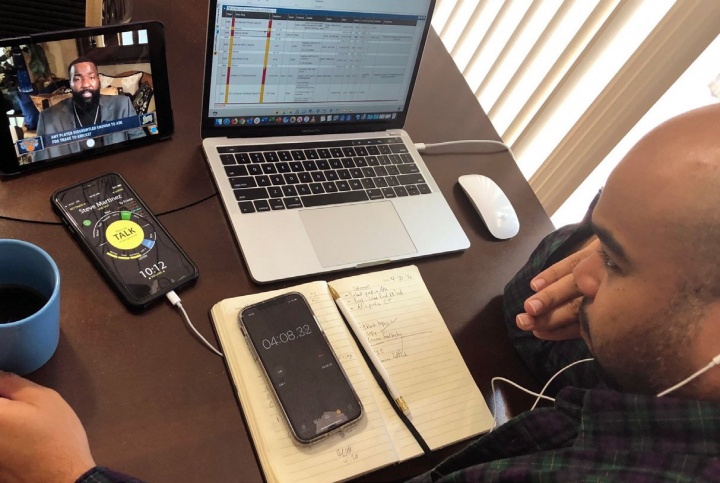
COURTESY STEVE MARTINEZ ‘11
“I find joy in spending time with my wife, Stephanie, and my dog, Callie, here in my Los Angeles home. I also take great pride in the ability to get a show on the air with the entire staff working from home, something we never knew was possible until we were confronted with that problem. Mainly, I just want the NBA back.”
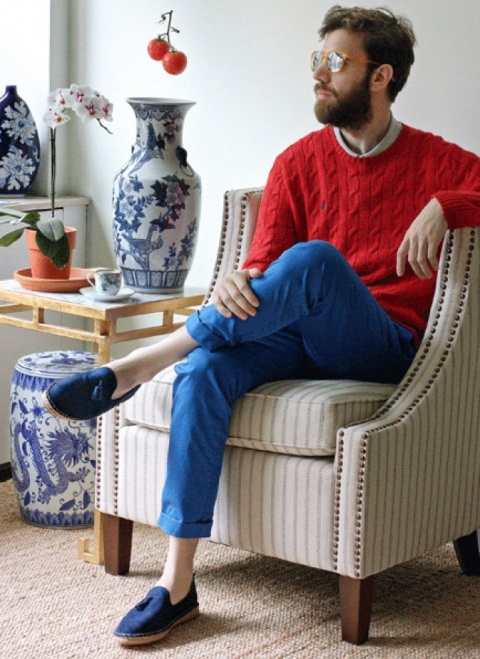
PHOTOS BY MIKE MELLIA ‘02
Director, photographer, creator of advertising for fashion and lifestyle brands
“Many of the world’s greatest successes took place in a garage — Apple, Google, Disney. By the same token, I always loved seeing pictures of Jackson Pollock and Willem de Kooning, two great abstract expressionist painters, painting in outdoor barns on Long Island during the 1950s and 1960s. They said they liked the light. What I really think they needed was the isolation and the silence.
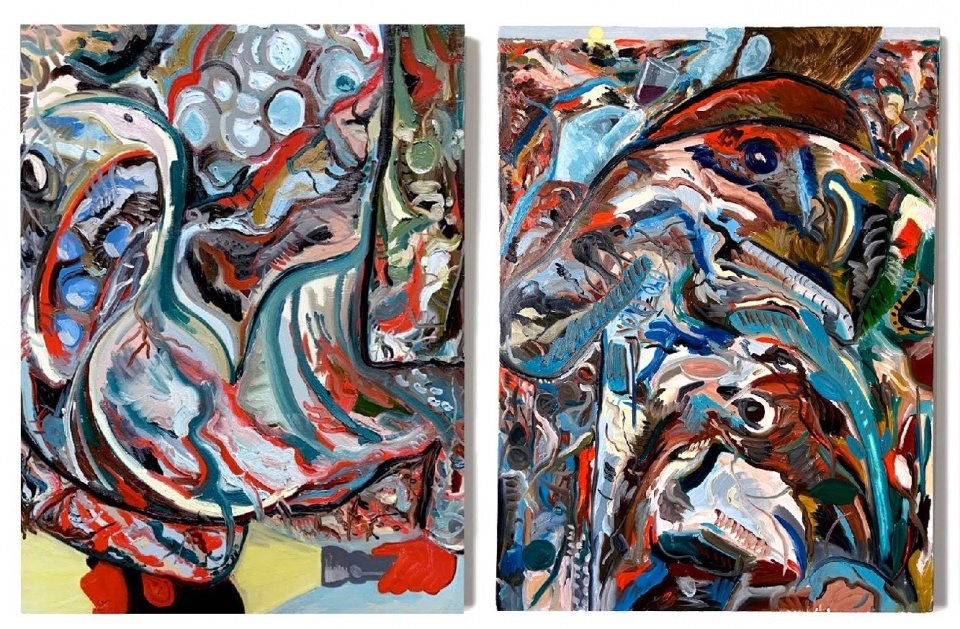
BY MIKE MELLIA ‘02
“To me, painting is a performance with an audience of zero, and the record of that performance is the physical object created, a mysterious enigma. Over tens of thou- sands of hours of practice, you train yourself to not even be conscious of yourself; it feels like I’m watching someone else paint a picture. There is also some element to painting that feels like robbing a bank: the intensity, the speed and the risk that you can only experience after learning to transcend all your experience and training. These large oil paintings are inspired by the wild chaos, the light and the color of nature I’m experiencing with my wife and two babies at our home in Southampton, N.Y. I hope they will bring you some joy.”
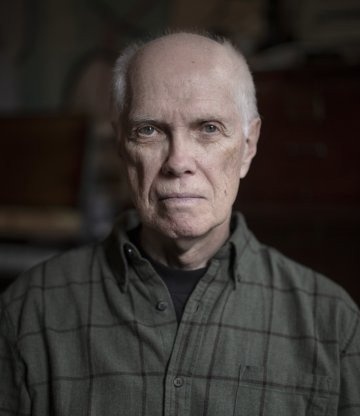
PASCAL PERICH
Geezer Fitness
I just did twenty-five push-ups,
then vacuumed the floor
and then dropped down
and did twenty more,
for what reason I cannot say
or even want to think about,
especially at this moment
when I am still breathing hard.
Locked
I almost didn’t know what
day it is and then
I did, locked into time,
suddenly more secure
that it’s Thursday!
Which means nothing
or next to nothing.
I am next to nothing—
it’s in this room with me,
an old pal.
What to Do
Snow falling from gray sky,
it’s time to bake,
scones, I mean,
and right out of the oven
take one and butter it,
with jam, teapot hot at hand,
and exult in the fact
of everything horrible.

COURTESY DAVID PENG ‘83
Head of Asia Pacific Ex Japan at Legal & General Investment Management; president, Columbia University Alumni Association Hong Kong
“Though I am a New Yorker, I have spent my professional life in North Asia and this is my fourth posting in Hong Kong, with in-between postings in Taipei, Shanghai and Beijing. I was in Hong Kong during the SARS epidemic in 2003. Most people in Hong Kong remember that period well. When news broke in January about what was happening in Wuhan, people in Hong Kong quickly realized the potential of another epidemic.
“The Hong Kong government was quick to put in place restrictive measures. To date, Hong Kong has never had an official lockdown, but people take the lead from the government, which asked all civil servants to work from home under two orders. People in Hong Kong are very careful to protect themselves and others, and mask wearing is universally practiced. With one of the highest population densities in the world, Hong Kong has managed to ward off a high level of viral transmission and achieved minimal death.
“When I traveled to London for meetings at the end of January through the middle of February, friends and colleagues were not concerned.They also thought it was odd that there would be runs on basic supplies like toilet paper. We know now how quickly the virus traveled and the devastation it has inflicted on our world, with the highest rates of infection and death in Europe and the United States.
“At my office in Hong Kong, we continue to practice a work- from-home policy. Our U.K. head office went into lockdown. This forced many businesses to operate remotely and digitally. For many of us, it was a continuation of the restrictions we have become accustomed to.
“My proudest moment thus far during this pandemic is how the Columbia community in Greater China and Singapore banded together to raise funding to procure and donate PPE to our frontline medical professionals and essential workers. We raised more than $2.1 million in a matter of weeks, which allowed us to donate masks, respirators, gowns, gloves, eye protectors, hazmat suits and more to Columbia University Medical Center/New York Presbyterian Hospital and other affiliated hospitals and emergency service providers.
“During my time at Columbia, I was an official University tour guide. The highlight for me was always Low Memorial Library, where I would stop my tour group in front of the Columbia motto. In Latin, it reads: In Lumine Tuo Videbimus Lvmen (‘In thy light we shall see light’).
“During these dark times, it is my great hope that the pandemic has shown us how we can be better ourselves and that, united, we shall continue to see the light.”
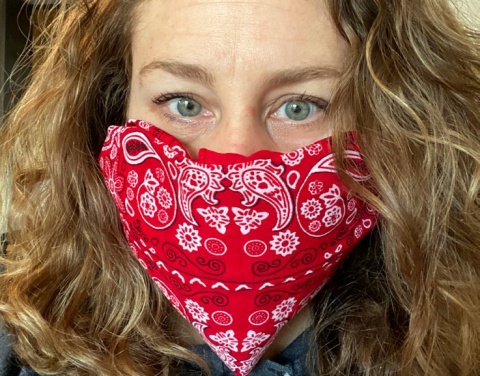
PHOTOS COURTESY JILL SANTOPOLO ‘03
Editor and author
“On March 12, when Penguin Random House (PRH)’s work-from-home policy began, I grabbed my laptop and headed out of New York City, down to Washington, D.C., where my husband works and where we have a second small apartment. I figured we’d be there for a week at the most, until he began to work from home, and then we’d head back to Manhattan. I’m writing this on May 8. We haven’t yet been back. We are grateful to have jobs we can do from home — his in data and analytics, mine as an editor and novelist. But both of us working from home has meant getting creative with our 700-sq.-ft. space. The bedroom is his office, the rest of the apartment, mine, with a desk — actually, a table that formerly held our record player — next to the refrigerator.
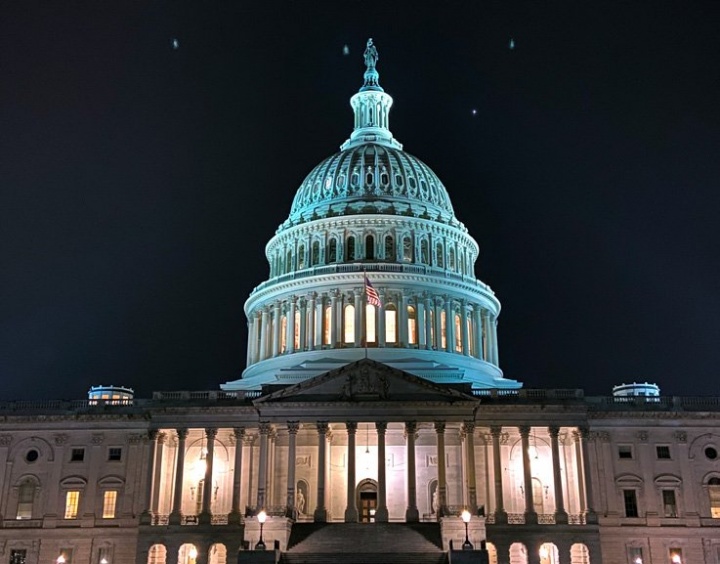
COURTESY JILL SANTOPOLO ‘03
“But at the same time, I can’t stop thinking about New York City. I lived there during 9-11, the 2003 blackout, Hurricane Sandy. I feel like I’ve abandoned my city in its time of need. Neoclassical buildings are beautiful, but so are skyscrapers.
“This pandemic might have made me a Washingtonian, but it also made me realize that in my heart I will always be a New Yorker.”
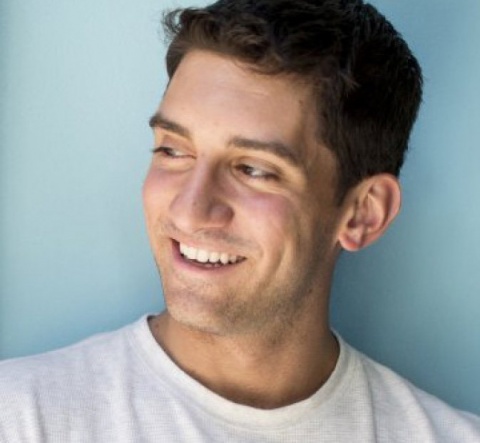
ARIEL KAO
Entrepreneur; founder, Locasaur
“I left New York in mid-March thinking I’d be back in a matter of weeks, and my packing reflected this. As the situation became more clear, I realized I’d be staying here for a while, on my family’s farm in Virginia’s Shenandoah Valley. Those who know me know I’m not exactly upset by this. I grew up here, alongside a rotating menagerie of horses, chickens, sheep and the occasional goat. There are 10 shades of green in every direction, and I’ve never been more thankful for the wide open, secluded space. “So much of what’s great about New York happens after dark, and waking up early is done at your own peril. When I’m home, however, I’m on ‘farm time.’ Coffee is on and the house is buzzing by 6:00 a.m. My company Locasaur’s daily standup isn’t until 10:00 a.m., so early mornings are usually given to farm tasks and chores. There is a rhythm that you get into living on a farm; days keep churning, things keep needing to get done. A farmer’s mindset is that no matter the day’s challenge, you find a fix.
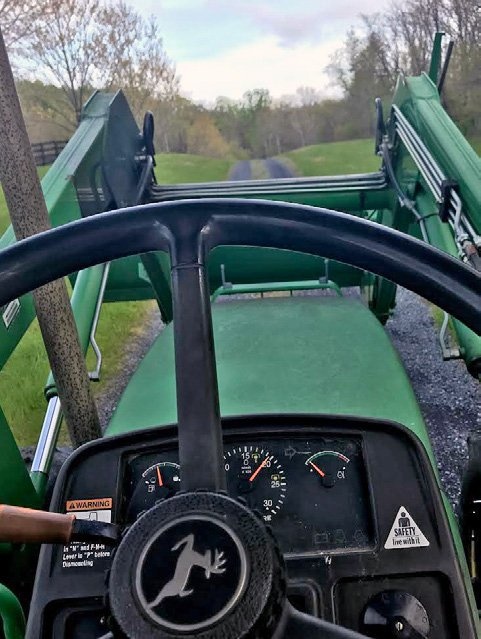
COURTESY SIMON SCHWARTZ ‘17
“The majority of my day is devoted to re- mote work of the most urgent kind. Locasaur is a relationship app for local businesses and their regulars, and right now local businesses need their regulars more than ever. Every creative solution demanded by the reality of COVID-19 — the bakery now doing road- side pickup, the florist who started delivering, the bartender selling premixed cocktails — starts with a business having a group of core customers who truly care about it. Our goal is to power some of those creative solutions and help these businesses go digital without giving up the ‘personal touch’ that means so much to their survival. The next 12–18 months won’t be easy, but local business owners are uniformly some of the toughest people I know. In many ways they, too, have a farmer’s mindset.”
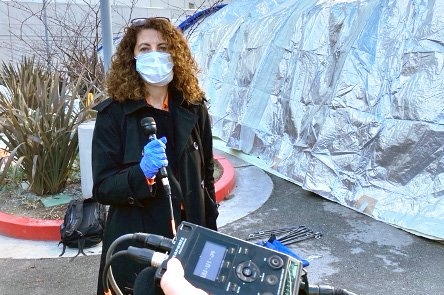
COURTESY MARGARET TRAUB ‘88
Head of global initiatives, International Medical Corps
“My work is emergency medical relief, so the pandemic has taken over my daily life in every way. My organization normally works in conflict and disaster zones overseas, but with COVID-19, in addition to responding to the pandemic in 30 countries, we have deployed healthcare workers and supplies on the front-lines here in the United States — at hospitals in New York, Los Angeles, Chicago, Detroit, Cleveland and Puerto Rico, so far.
“My days start around 5:30 a.m. — bleary-eyed in bed, scrolling through emails and the latest news. I learned early that if I don’t get into the shower by 6:30 a.m., I wind up chained to Skype and video calls in my PJs (and sometimes a nice blouse) until 5:00 p.m. Yes, that’s happened more times than I’m comfortable admitting.
“In between calls with our teams — mostly about procuring PPE, or moving supplies and clinicians, or raising money — I’m checking in with my family in New York, Utah and Arizona. I have a severely immuno-compromised sister and healthy but 90-ish-year-old parents, so I worry constantly about them and have to resist the urge to go be with them. I frequently text and call friends, including my Columbia pals. And at some point during my days I try to squeeze in a workout — usually to old episodes of 30 Rock. Another important COVID-19 distraction: cooking and baking, which I love.
“My heart breaks every day, thinking of the suffering going on around us. And not a day goes by that I don’t feel grateful to be healthy and to have a mostly healthy family and a job that puts a roof over our head and food on our table.
“Thanks to all those heroes out there, putting their lives on the line to serve their fellow humans. Everyone stay safe and healthy!”

Published three times a year by Columbia College for alumni, students, faculty, parents and friends.
Columbia Alumni Center
622 W. 113th St., MC 4530, 6th Fl.
New York, NY 10025
212-851-7852
cct@columbia.edu

Columbia Alumni Center
622 W. 113th St., MC 4530, 4th Fl.
New York, NY 10025
212-851-7488
ccalumni@columbia.edu